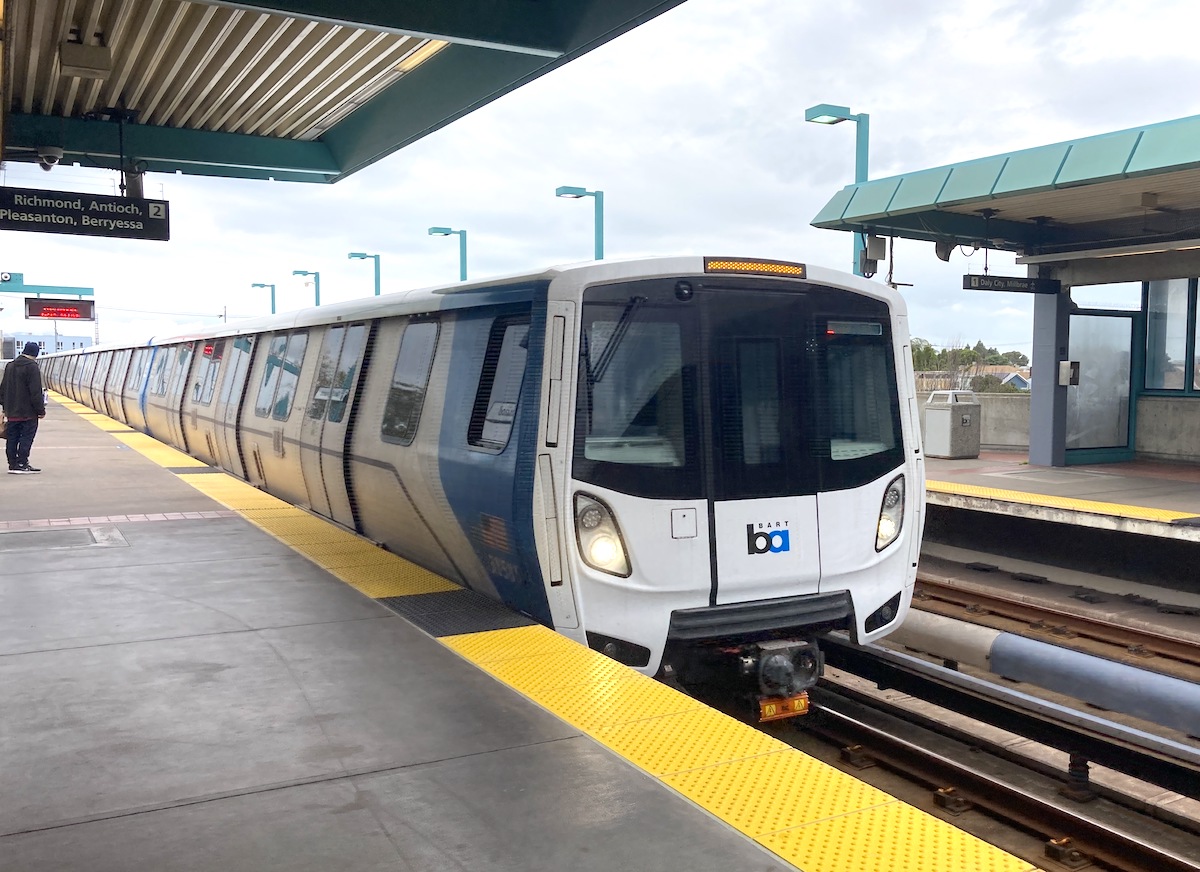When BART originally signed a contract to purchase a replacement fleet of gleaming aluminum train cars in 2012 the price tag was projected at $2.58 billion.
Now, the transit agency says that its “Fleet of the Future” project is coming in under budget by $394 million.
The new train cars, which are already operating across the system’s routes, have different internal designs with more standing room, seats that are easier to keep clean, and screens near doors that provide real-time updates on each train’s location and route.
Alstom, formerly Bombardier, builds the shells of the new cars in Mexico, which are shipped to New York State where they’re assembled into the final product. The cars are then trucked cross country to BART.
BART says it saved $100 million after it and Alstom figured out how to ship more trains per month than they originally thought they could, from 10 new cars to 16. Fleet of the Future project manager John Garnham also said on this week’s BART podcast that the agency saved money by using their own engineers, even though they did bring in outside contractors for software issues.
“Our engineers are motivated to fix the problem and solve it,” Garnham said.
The savings come at a time when BART is still feeling financial pressures from the pandemic, which massively reduced ridership. Rider numbers still haven’t fully rebounded.
A BART train also recently derailed near the Orinda Station due to problems with the computer system that controls track alignments. Two cars caught fire and several passengers suffered injuries.
One of BART’s other major investments right now is a $90 million station “hardening” project to make it more difficult for anyone to board a train without paying a fare. New fare gates have already been installed at the West Oakland Station. The transit agency estimates that it loses around $25 million from fare evasion each year.
The original contract with Bombardier for the new trains promised that the final cars would be delivered by April 2023. Due to budget and pandemic delays, as well as problems with some of the new cars’ performance, there was a 15-month pause in deliveries between 2021 and 2022. The first new cars were put into service by BART in 2017 and the final cars will be delivered later this year.

